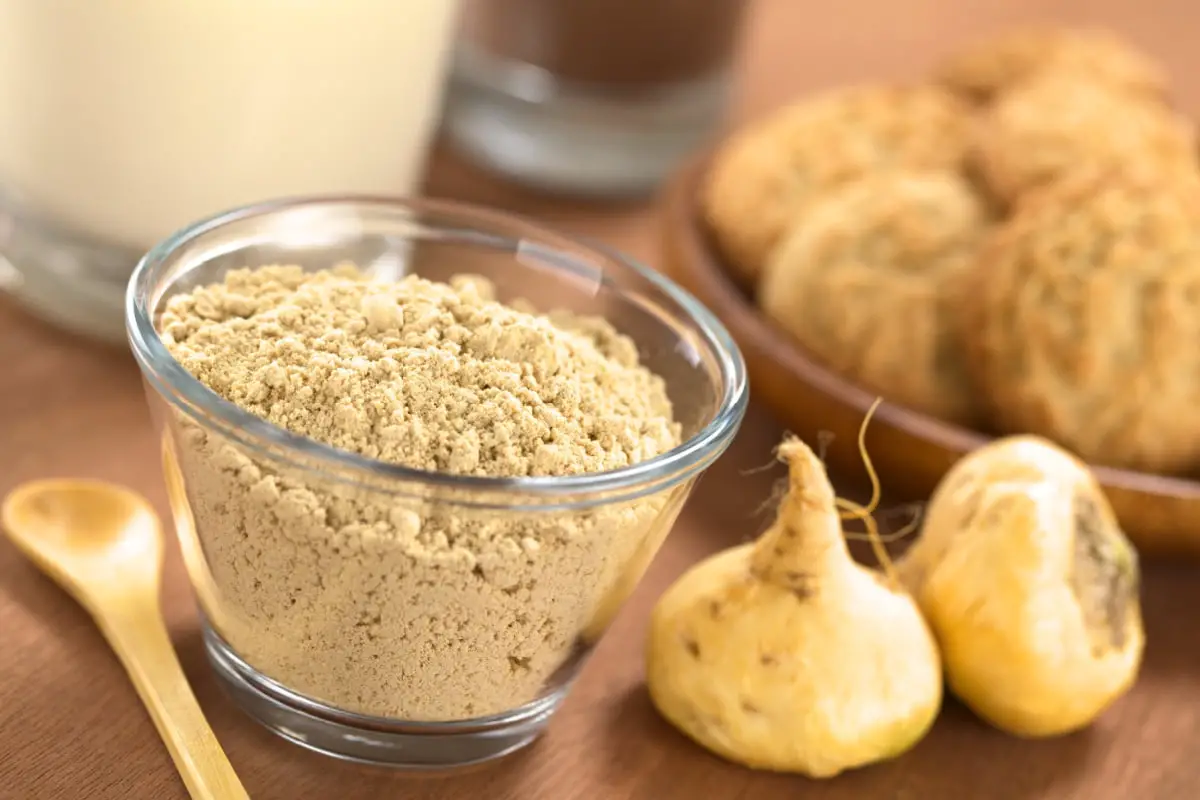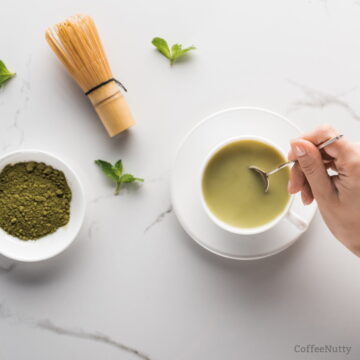With the pandemic triggering a worldwide surge in health consciousness, more and more consumers have begun integrating superfoods into their diets. This recent trend has allowed maca coffee, a superfood product, to gain popularity for its supposed health benefits.
Maca coffee is a coffee-like powder made from ground maca root. Because the maca root has energizing, fertility-enhancing, and nutritional properties, maca coffee is increasingly consumed by health-conscious consumers.

We are not doctors here at Coffee Nutty, but we love to share anything related to your morning coffee.
In this article, we will go over how maca coffee is processed and consumed and also expound on the many health benefits this superfood product offers.
Note it is strongly encouraged to inquire about the use of maca with your doctor before trying maca root powder for medicinal purposes or adding it to your daily routine.
Maca Coffee: An Overview
The maca root has long been cultivated in the Andes mountains, particularly in Peru, where the maca plant (Lepidium meyenii) is native.
Legend would even have it that the Incas would consume maca before going into battle as they believed it would give them strength.
The maca plant naturally grows in high elevations ranging from 3,800-4,400 meters (above sea level). Once the maca was ready for harvest, the Peruvians would dry it in the sun before readying it for consumption.
After drying, however, the maca hypocotyl becomes too hard to eat. Peruvians would boil the hypocotyl to extract a soft flesh that they could juice.
The maca has a very earthy flavor which tends to be quite unpopular with consumers. This is why it is more common to find the maca in its “coffee” powder form. However, if the maca was sold in juice, you would not find it on grocery shelves.
Take note; maca coffee is not actual coffee. It is purely ground maca root. What gives it its coffee-like flavor is the roasting it undergoes before it is powdered.
Despite not being actual coffee, the flavor of maca coffee is close enough to blend just as well into your favorite latte.
Maca coffee also goes well with vanilla and hazelnut flavors, and you can even complement its earthy taste with a generous serving of cream and caramel.
Who knows, we could see maca coffee becoming a mainstream alternative to a regular cup of coffee!
RELATED: Why Does Coffee Taste Nutty?
The Health Benefits of Maca Coffee
What truly gets consumers excited about maca coffee are the various health benefits it potentially offers.
From improved physical performance to enhanced learning, the positive effect of maca has no limit.

Maca’s Energizing Effects
The scientific community seems to agree with the Incas on maca’s ability to give you a boost in physical performance and energy levels.
For example, a study on soccer players showed that ingesting 1500 mg of maca improved physical performance by 10.3% on average.
Additionally, in a swimming test done using mice, a study showed that an intake of maca ranging from 400mg/kg to 1,200 mg/kg could decrease lactic acid in the blood and increase liver glycogen, which corresponds to longer swimming times.
Still, the study also acknowledged that anything more than 1,200 mg/kg increased serum urea nitrogen, which can be pretty harmful.
RELATED: How Much Caffeine in Coffee vs. Chocolate?
Maca’s Fertility-Enhancing Effects
Another health benefit maca is known for is its ability to enhance fertility.
In all the trials of one systematic review, it was shown that maca has favorable effects on the quality of semen. The apparent effects apply to both healthy and infertile men.
Another study suggests that maca improves total sperm count, motile sperm count, and sperm motility. 9 healthy men consumed maca for 4 months, and the average total sperm count increased from 140.95 106/mL to 259.29 106/mL. Meanwhile, sperm motility rates rose from 62.11% to 72.01%.
Beyond fertility, maca is also known to improve sexual desire/ sex drive. In a 12-week double-blind placebo-controlled trial, nearly half of the men in the maca-treated group reported increased sexual desire.
It must be noted that this increase is not at all related to serum testosterone or estradiol levels.

Maca’s Anti-Diabetes Effects
Less highlighted but just as important are the anti-diabetes effects of maca. In another study highlighting glucose levels among rats, the rat group that ingested 6g of maca flour daily saw a dramatic decrease of 35-57.8% in glucose levels compared to the control group.
Furthermore, maca exhibits properties that protect the body from type 2 diabetes. Maca extracts have antioxidant capacities and can correct glucose and lipid metabolic disorders.
Maca’s Learning Effects
Lastly, maca decreases malondialdehyde levels in the brain, as shown by another study involving rats consuming aqueous maca extracts.
High levels of malondialdehyde often signal high oxidative stress. When oxidative stress is high, brain cells become prone to damage, often leading to cognitive impairment.
As such, if you wish to perform optimally during your exams, ditch your bottled soda. Have a cup of Maca coffee instead!
Conclusion
With the numerous health benefits of maca powder, it’s no wonder we’re seeing more and more of it in our local groceries.
After all, humans are becoming more conscious of our food choices as we continue to discover the marvels of Mother Nature.
What could the superfoods of the future be?
FAQs
Maca does not contain caffeine but is said to improve energy levels.
The active compounds in maca are thought to provide numerous health benefits, including increased energy levels, improved cognitive function, and better hormonal balance.





